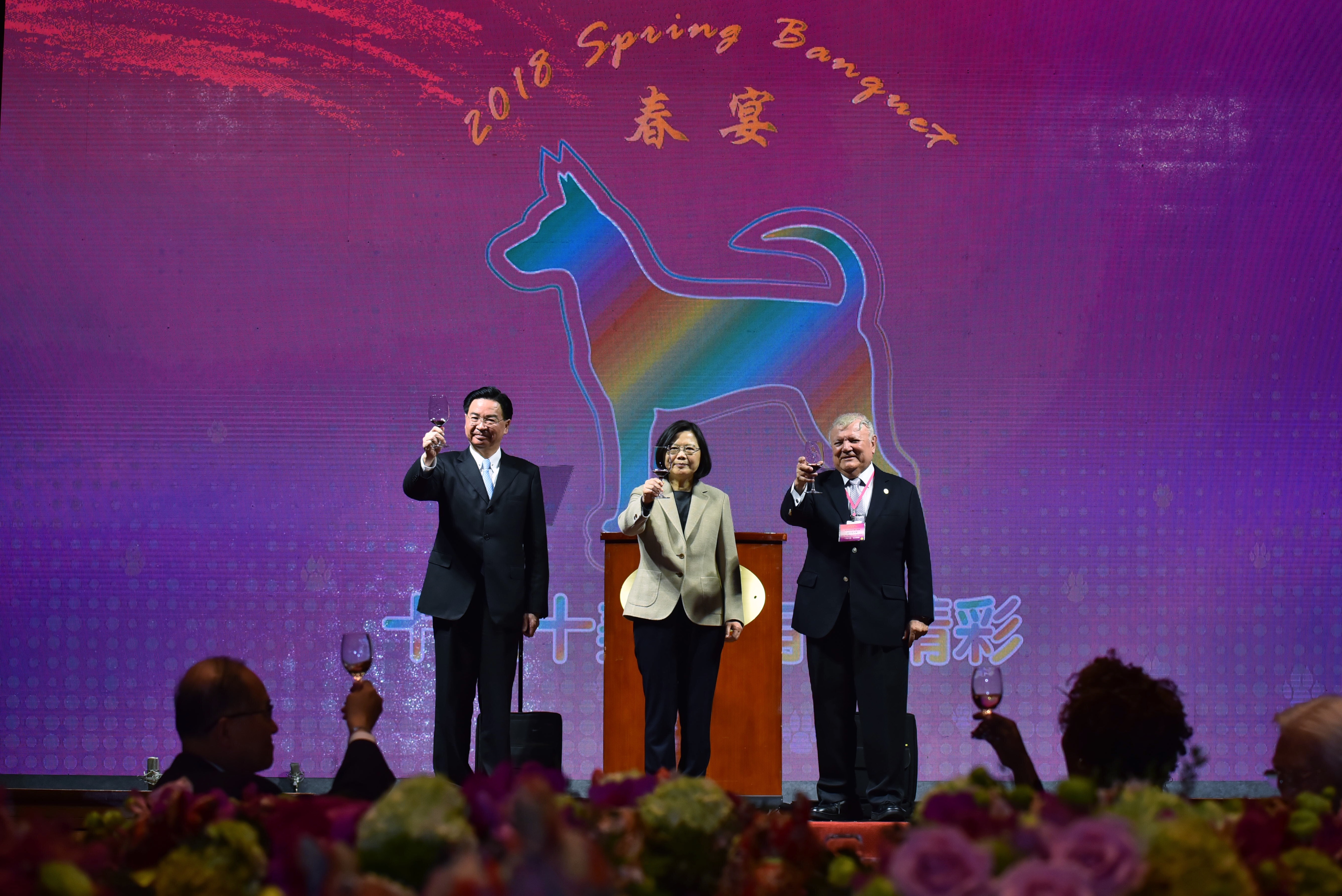
New Minister of Foreign Affairs Jaushieh Joseph Wu hosted the 2018 Spring Banquet for foreign ambassadors and representatives Feb. 27 in Taipei City, expressing gratitude for their efforts in strengthening bilateral relations and pledging to deepen Taiwan’s exchanges with diplomatic allies and like-minded nations.
According to Wu, who assumed his post the previous day, the government’s steadfast diplomacy strategy and New Southbound Policy are advancing regional and international cooperation. Taiwan will continue to pursue flexible and innovative approaches to fostering ties as well as promote peace and prosperity in the Asia-Pacific, he said.
Held at the Grand Hotel, the Ministry of Foreign Affairs Spring Banquet was attended by President Tsai Ing-wen, Control Yuan President Chang Po-ya and some 300 foreign representatives and leaders from fields like arts, business and health care. Themed around the Year of the Dog, the event featured performances by local cultural groups including tap troupe Dance Works and jazz band Life.
In her address at the banquet, Tsai said that steadfast diplomacy, which seeks to expand ties on the basis of mutual assistance for mutual benefits, has helped bolster the nation’s foreign relations amid an uncertain global climate. As a vibrant democracy, Taiwan will continue to work closely with neighboring countries to support a free and open Indo-Pacific and safeguard universal values such as rule of law, she added.
According to the president, she witnessed the positive results of steadfast diplomacy in areas spanning business cooperation, medical sector development and people-to-people exchanges during her tour of Republic of China (Taiwan) diplomatic allies in Central America in January 2017 and the South Pacific in October and November the same year.
The New Southbound Policy has similarly yielded considerable benefits for the nation, Tsai said, highlighting recent rises in trade and visitor numbers from target countries. A key plank of the president’s national development strategy, the initiative seeks to enhance Taiwan’s agricultural, business, cultural, education, tourism and trade ties with the 10 Association of Southeast Asian Nations member states, six South Asian countries, Australia and New Zealand.
Tsai said that relations with like-minded countries including European partners, Japan and the U.S. are also going from strength to strength, as evidenced by new agreements, increased high-level exchanges and U.S. policies like the Taiwan Travel Act and 2017 National Security Strategy Report, which voices support for deepening two-way ties.
As a responsible member of the international community, Taiwan will continue to do its part in safeguarding regional peace, prosperity and stability, she said.
Also speaking at the event, Nicaraguan Ambassador to the ROC William Manuel Tapia Aleman lauded Taiwan’s successful transformation into a prosperous industrialized nation as a model for developing countries. He expressed hope that relations with allied and like-minded nations will continue improving in the Year of the Dog. (KWS-E)
Write to Taiwan Today at ttonline@mofa.gov.tw








